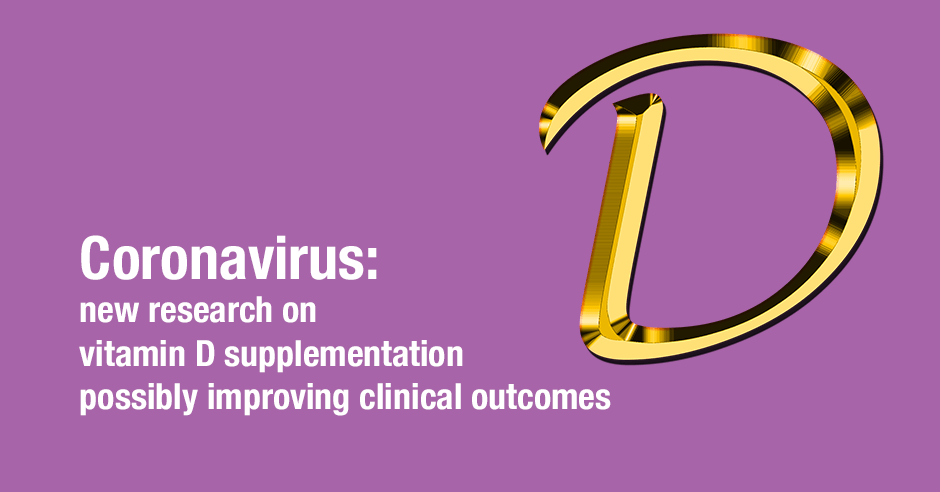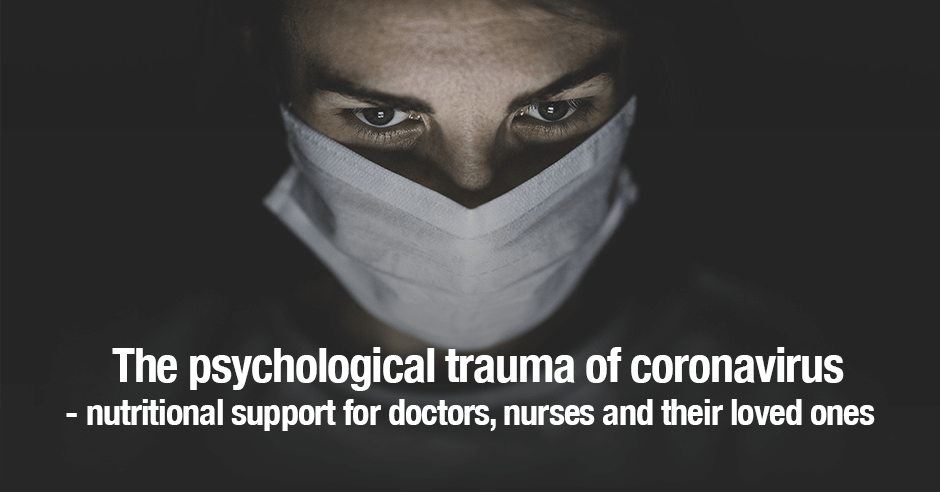
It’s very encouraging to see research like this being published in the midst of the coronavirus pandemic: Vitamin D Supplementation Could Possibly Improve Clinical Outcomes of Patients Infected with Coronavirus-2019 (COVID-2019)
Serum 25(OH)D level was lowest in critical cases, but highest in mild cases. Serum 25(OH)D levels were statistically significant among clinical outcomes.
The results suggest that an increase in serum 25(OH)D level in the body could either improve clinical outcomes or mitigate worst (severe to critical) outcomes, while a decrease in serum 25(OH)D level in the body could worsen clinical outcomes of COVID-2019 patients.
In other words, lower levels of vitamin D were associated with more severe symptoms and higher levels were associated with less severe symptoms. The role of vitamin D in immunity has been long understood and is summarized in the paper as follows:
Vitamin D has been proven to reduce risk of getting a common cold. It also enhances cellular immunity, modulates adaptive immunity, and enhances expression of antioxidation-related genes.
There are a few aspects I’d like to highlight: it was not a peer-reviewed randomized controlled trial but rather a retrospective study (looking back on past events) submitted as a research letter; it was a small study of 212 cases and they were all confirmed to have SARS-CoV-2 infection. Vitamin D status was based on serum 25(OH)D levels of “(1) normal -25(OH)D of >30 ng/ml, (2) insufficient-25(OH)D of 21-29ng/ml, and (3) deficient-25(OH)D of < 20 ng/ml,” with tests done every 7 days.
What is astounding to me is that such a small difference in vitamin D levels could have such a dramatic impact on severity of symptoms i.e. from a median of 31.2 ng/ml to 17.1 ng/ml:
- mild – mild clinical features without pneumonia diagnosis: serum 25(OH)D level was 31.2 ng/ml
- ordinary – confirmed pneumonia with fever and other respiratory symptoms: serum 25(OH)D level was 27.4 ng/ml
- severe – hypoxia (at most 93% oxygen saturation) and respiratory distress: serum 25(OH)D level was 21.2 ng/ml
- critical – respiratory failure requiring intensive case monitoring: serum 25(OH)D level was 17.1 ng/ml.
The author concludes as follows, recommending randomized controlled trials and large population studies:
… this study provides substantial information to clinicians and health policy-makers. Vitamin D supplementation could possibly improve clinical outcomes of patients infected with COVID-2019. Further research should conduct randomized controlled trials and large population studies to evaluate this recommendation.
I would really like to acknowledge the author, Dr. Mark Apilio, for taking the time to gather this information and submit this research in the midst of the pandemic, so we can all learn and further our knowledge.
I reached out to him to find out more about his interest in vitamin D. I was also curious to find out if vitamin D levels are routinely checked in the Philippines and if vitamin D supplementation recommendations are common practice. I received this feedback:
I am a clinical professor with experience in handling patients with infection. In times like this, academicians in the Philippines are driven to finding therapeutic drugs for Covid-19 or palliative drugs, at least. Also with other experts’ advice, Vit D could be a good topic to research using clinical outcomes of the Covid-19 patients.
Vitamin D supplementation in the Philippines is uncommon since most of the Filipinos believe that they could get Vit D easily because of the sun (country near the equator). However, Vit D test is common for patients with severe respiratory infections for monitoring of status. Based on the table [in the review letter], mean ± SD was used to report serum 25(OH)D level of the cases. I am happy with the results of the study and the support of Vit D advocates like you. I do hope this shall serve as a call for health officials to at least focus on something like this which could impact clinical outcomes of Covid-19 patients.
Keep in mind that low vitamin D is also a factor when it comes to mental health and anxiety. You can read more about this aspect here – Vitamin D: anxiety, depression, sun exposure, supplements and optimal levels. This blog also has additional information about testing and optimal ranges from the Vitamin D Council.
I really like these two Designs for Health products: Vitamin D Synergy which provides Vitamin D3 2000 IU and vitamin K1; and Vitamin D Supreme which provides Vitamin D3 5000 IU and vitamin K1/K2. Both can be purchased via my online supplement store (details on setting up an account here).
Vitamin D is such a simple and yet powerful intervention for immune support and I look forward to randomized controlled trials for coronavirus. In the meantime, it’s one of the many immune-supportive nutrients I plan to continue using and recommending to my clients.
UPDATES 5/1/2020:
I’m sharing some updates to last week’s blog on vitamin D and coronavirus because there is a brand new study with astounding results and some other supporting vitamin D papers. There is also new research on vitamin K and coronavirus and I’ve added this one too. I did hear back from the author in the Philippines and added his feedback above.
This is the new paper with astounding results. It was a retrospective cohort study: Patterns of COVID-19 Mortality and Vitamin D: An Indonesian Study (and just posted April 26). It had 780 cases with laboratory-confirmed infection of SARS-CoV-2 in Indonesia:
Age, sex, co-morbidity, Vitamin D status, and disease outcome (mortality) were extracted from electronic medical records. The aim was to determine patterns of mortality and associated factors, with a special focus on Vitamin D status. Results revealed that the majority of the death cases were male and older and had pre-existing conditions and below normal Vitamin D serum level.
These are the astounding results:
- Vitamin D deficient cases (serum 25(OH)D of < 20 ng/ml) were approximately 19.12 times more likely to die from the disease
- Vitamin D insufficient cases (serum 25(OH)D of 21 – 29 ng/ml) were approximately 12.55 times more likely to die from the disease
This review paper, Evidence that Vitamin D Supplementation Could Reduce Risk of Influenza and COVID-19 Infections and Deaths published earlier in April makes these recommendations about dosages and vitamin D levels to aim for (pending additional research):
To reduce the risk of infection, it is recommended that people at risk of influenza and/or COVID-19 consider taking 10,000 IU/d of vitamin D3 for a few weeks to rapidly raise 25(OH)D concentrations, followed by 5000 IU/d. The goal should be to raise 25(OH)D concentrations above 40-60 ng/mL (100-150 nmol/L). For treatment of people who become infected with COVID-19, higher vitamin D3 doses might be useful. Randomized controlled trials and large population studies should be conducted to evaluate these recommendations.
In this paper (not yet peer-reviewed), Reduced Vitamin K Status as A Potentially Modifiable Prognostic Risk Factor in COVID19, the authors report that vitamin K status – according to Dp-ucMGP levels – was reduced in patients with COVID-19 and related to poor prognosis.”
They state this is due to the fact that “Coagulation is an intricate balance between clot promoting and dissolving processes in which vitamin K plays a well-known role.” They also propose an intervention trial with vitamin K for patients with COVID-19.
Do share if you routinely get your vitamin D levels checked and supplement regularly with vitamin D. And let us know if you’ve noticed an improved immune system when your vitamin D levels are optimal. If you did get the virus please also let us know how you’ve fared and recovered.

